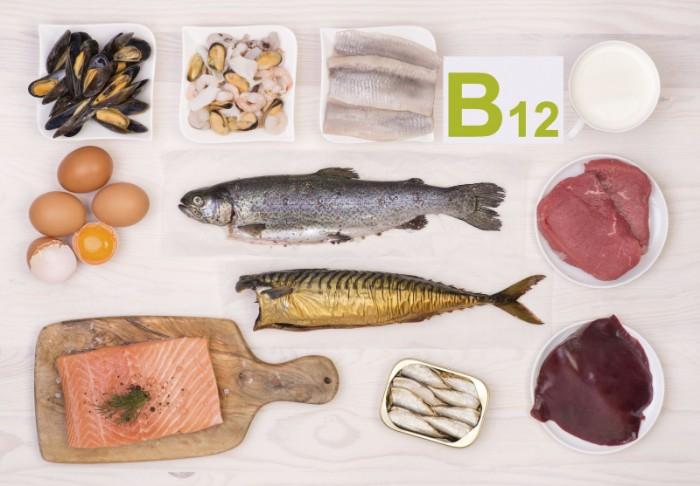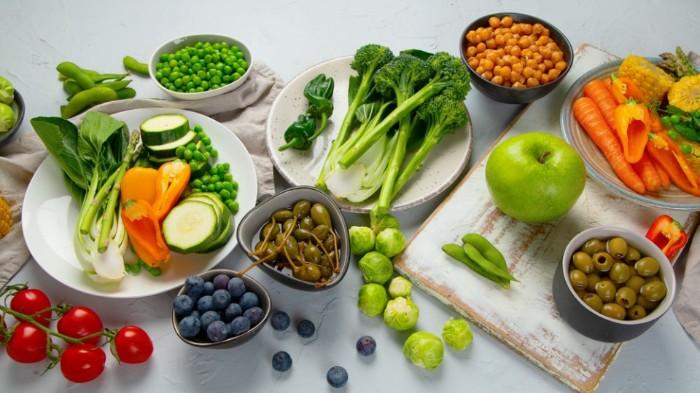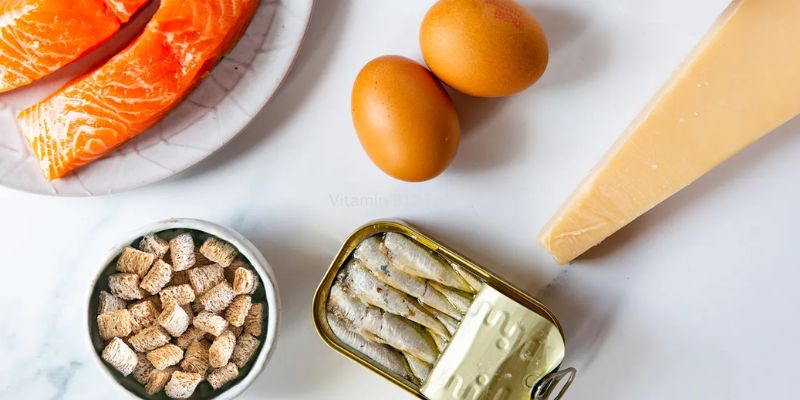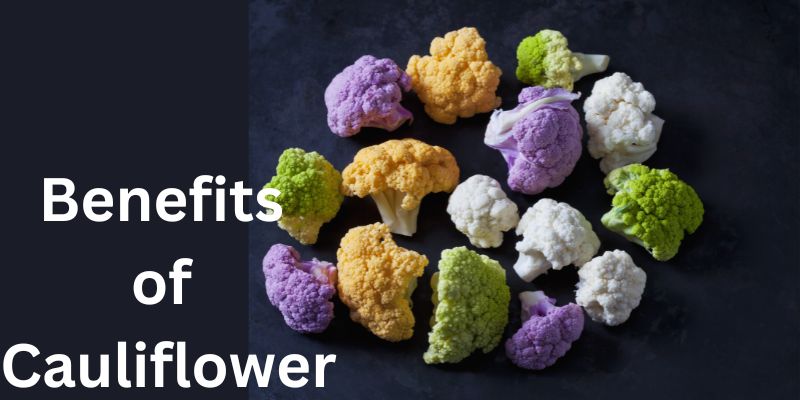Are you feeling run-down or experiencing fatigue? Your body may need an extra boost. Vitamin B12 is a critical nutrient for our health and well-being – it helps to create red blood cells, maintains energy levels, and boosts the immune system – so it's no surprise that dietary sources of vitamin B12 are essential for optimal functioning.
In this blog post, we'll explore the different types of food where you can find this important vitamin and how these options handily fit with everyday meals. So grab yourself a comforting cup of tea and settle in as we dive into everything related to Vitamin B12 foods.
Understanding Vitamin B12 and its importance in the body
Vitamin B12 is essential in many foods, including meat, seafood, dairy products, and fortified cereals. It plays a key role in the body's production of red blood cells and helps maintain healthy nerve tissue. Vitamin B12 deficiency can lead to serious health problems such as anemia and neurological disorders.
Foods that are naturally rich in Vitamin B12

The vital component vitamin B12 supports the health of the body's neurons and blood cells. Foods like meat, eggs, dairy, shellfish, fortified grains and cereals, and some nutritional yeast products all contain it. Foods that are naturally high in vitamin B12 include the following:
• Meat: Beef, pork, lamb, and organ meats such as liver are all excellent sources of Vitamin B12.
• Eggs: Most eggs contain small amounts of Vitamin B12, but those from hens fed a diet supplemented with Vitamin B12-fortified feed will have more of this nutrient.
• Dairy products: Milk, yogurts, and cheeses all contain Vitamin B12. However, vegan dairy alternatives such as plant-based milk are not natural sources of this nutrient.
• Seafood: Fish and shellfish are some of the best natural sources of Vitamin B12. Examples include salmon, mackerel, tuna, oysters, and mussels.
• Nutritional yeast: This is a deactivated type of yeast that can be used as a condiment or sprinkled on food for an extra boost of Vitamin B12.
It's important to remember that the amount of Vitamin B12 in each food may vary depending on where and how it was grown or raised. To ensure you are getting enough Vitamin B12, you should include a variety of naturally rich foods in this nutrient as part of your diet.
Guidelines for consuming Vitamin B12 supplements
Vitamin B12 is an essential nutrient for the human body and can be obtained in many forms. One of the most popular methods is through dietary supplements. However, even if you're taking a vitamin B12 supplement, it's important to ensure that your daily intake meets the recommended amount for optimal health.
Here are some important guidelines to keep in mind when consuming vitamin B12 supplements:
- Read the label information before taking any supplement or medication. Some medications can interfere with the absorption of vitamin B12, so it's important to know which ones may have this effect.
- Consider talking to your doctor or nutritionist before beginning a vitamin B12 supplement regimen, as they can help you determine the best dose for your individual needs.
- Take the recommended dose of a vitamin B12 supplement regularly and maintain an adequate supply in your body. This will ensure that you get enough of this important nutrient daily.
- Eat a balanced diet with foods rich in vitamin B12, such as fortified cereals, meat, fish, milk, and dairy products. This will help ensure you get enough of this nutrient even if you cannot take a supplement regularly.
Taking the right amount of vitamin B12 is essential for maintaining your health. Following these guidelines can help you get the proper amount of this important nutrient from supplements and diet.
Benefits of consuming Vitamin B12-rich foods

Vitamin B12 is an essential nutrient vital to your body's proper functioning. It helps to form and regulate the nervous system, red blood cells, and DNA production. It also helps metabolize fats and proteins for energy, so it's important to ensure you get enough Vitamin B12 in your diet. Eating foods rich in Vitamin B12 is a great way to ensure you get this important nutrient's proper daily amount.
How to incorporate Vitamin B12-rich foods into your diet
1. Start your day with a breakfast enriched in Vitamin B12. Some great choices are oatmeal topped with nuts and seeds, a smoothie made with fortified plant-based milk and frozen berries, or scrambled eggs on toast with spinach.
2. Add canned sardines to salads or sandwiches as an easy way to get extra Vitamin B12.
3. Add fortified plant-based milk to your cereal, oatmeal, or smoothies for a Vitamin B12 boost.
4. Incorporate fortified breakfast cereals into your daily routine - look for those that contain 100% of the daily value (DV) of vitamin B12.
5. For a quick snack, grab a handful of almonds or sunflower seeds for an extra boost of Vitamin B12.
6. Incorporate dairy products such as cheese and yogurt into your meals for an additional dose of vitamin B12; make sure to check the nutrition label to ensure you're getting 100% of the DV.
7. Swap out your regular beef burgers for veggie burgers made with portobello mushrooms and fortified plant-based meat alternatives for some extra Vitamin B12 in your diet.
Making small changes to your meals and snacks ensures you get all the Vitamin B12 you need for a healthy, balanced diet. Everyone is different and will require varying amounts of Vitamin B12 to meet their needs, so make sure to speak with your healthcare provider if you're concerned about your dietary intake. Most importantly, have fun with food and enjoy creating nourishing meals.
FAQs
How can I increase my B12 naturally?
Eating foods rich in this essential nutrient is the best way to naturally increase your Vitamin B12 intake. Such foods include dairy products, eggs, organ meats (like liver and kidney), fish, meat, fortified breakfast cereals, and some nutritional yeast products.
Which fruit contains vitamin B12?
Vitamin B12 is not found in any fruits. It is, however, found in certain animal products such as dairy foods (such as milk and yogurt), eggs, and meat.
What fruit and vegetables have vitamin B12?,
Though Vitamin B12 is not found in fruits, it is found in certain vegetables such as beetroot, broccoli, spinach, and Brussels sprouts. It can also be found in dairy products (such as milk and yogurt), eggs, and meat.
Conclusion
Understanding the basics of Vitamin B12 and its role in the body is important. By taking the time to understand how to incorporate Vitamin B12-rich foods into your diet, you can reap the benefits the vitamin has to offer. Selecting plant-based sources when possible, selecting portions appropriate for your caloric needs, and budgeting for supplements if necessary are simple steps to add more Vitamin B12 into your regimen for overall health.



